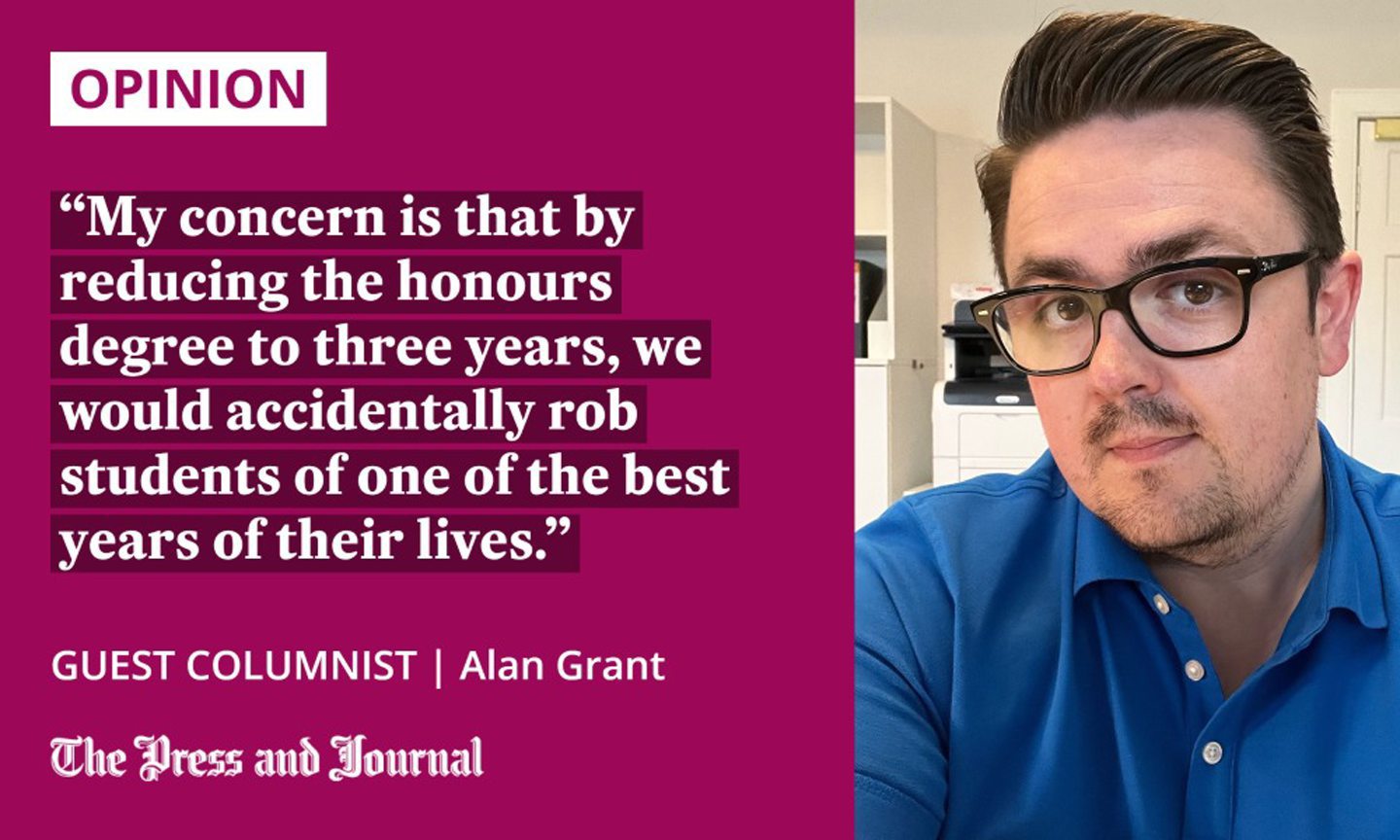Despite the occasional government mishandling and some bad press, a Scottish university education is still worth having.
Our country is full of excellent institutions of higher education, including first-rate universities like Aberdeen and Dundee, and Scotland is rightly proud of its great reputation in learning. Transient debates around “free speech on campus” and so on will come and go, but the benefits of a Scottish degree remain.
It is for this reason that a policy announced at the recent Scottish Tory conference in Glasgow is especially concerning. Education spokesman Stephen Kerr has said that a Conservative government at Holyrood would put an end to the traditional four-year Scottish undergraduate degree and replace it with the three-year format favoured in the rest of the United Kingdom.
While there are arguments in favour of this policy in terms of getting more students through degree programmes and harmonising with the rest of Britain, it would undermine certain key aspects that make a Scottish university education attractive and rewarding.
Taking four years to do what could potentially be done in three may sound like efficiency, but it can also be seen as rushing.

As the holder of a four-year honours degree from the fine University of Stirling myself, the process of having one year to bed in, one further to gain access to honours, and two to complete honours education always felt like a good drumbeat and a natural way to go about studying.
The benefits of that first, slightly less important year cannot be understated.
It allows students, especially those who will be moving to new cities like Aberdeen, Dundee or Inverness, a chance to get to know their new surroundings, without the additional pressures of having to perform academically immediately. This is even more key for those whose new degree programme might not be directly related to the subjects they took in their secondary school years.
It’s worse still if you think about it in terms of cutting off the last year of the degree.
I declare my nostalgia up front. I remember the final year of my honours degree as one of the best of my life, and many others who have completed degrees at different Scottish unis agree.
That final year, with a dissertation to do and fewer classes, gives one a more flexible schedule – a chance for one last hurrah of a year to get the undergrad antics out of the system, and time to contemplate a future career or the next academic step.
I can only hope that more than just my very unscientific sample had even half the fun and learned a quarter as much as my friends and I did in our last year at uni.
Fun and freedom are important parts of the university experience
I don’t wish to pour cold water on Mr Kerr or his party for coming up with new and innovative ideas to improve our already excellent education system, goodness knows that never helps.
Proposing ideas that are radically different from the current approach is precisely the job of the opposition, and the Scottish Conservatives are doing just that with this plan. The initiative and desire for change and improvement is welcome, and it ought to be encouraged across Holyrood.
Three-year degrees might manage the ‘university’ bit, but could put our own unique Scottish campus ‘life’ bit at risk
My concern is that by reducing the honours degree to three years, we would accidentally rob students of one of the best years of their lives.
Whether it is that hedonistic, drunken, debauched and raucous first year away from the watchful eyes of mum and dad, or that final year embedded in campus life as a leading member of a sports team, a pillar of a club or society, or a senior member of the staff of the student newspaper or radio station, such as my own, fondly remembered, Air3 Radio – these are two equally important parts of university life.
Three-year degrees might manage the “university” bit, but could put our own unique Scottish campus “life” bit at risk, and that’s too valuable to lose.
Alan Grant is a writer and political commentator. He also works in public relations, public affairs, and communications


Conversation